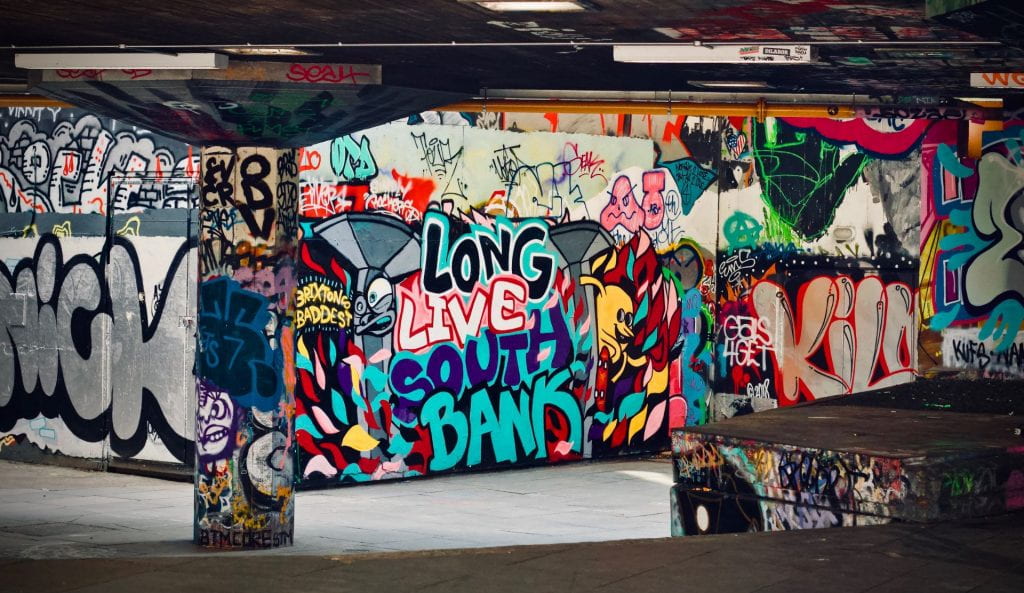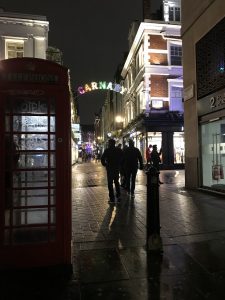London’s attractions are the best in the world. That is not my opinion, that is fact! So, while you’re studying in the UK, this is how you can immerse yourself in the diversity of cultures that reside in this global metropolis.
1. Museums (all of them)
One of the best parts of living in London is that learning and artistic appreciation can be done for little to no cost. Nearly all the museums in London are free, meaning that this broke student has been to quite a few! The Museum of London is a journey through the 2,000 years of human history along the Thames, and I learn something new each time I visit. The Victoria and Albert Museum showcases artistic history from across the world in a beautiful Victorian building, as does the British Museum. Check out the Rosetta Stone and the Elgin Marbles, then move on to the mummies, the Assyrian lion hunt sculptures and the clock room (yes, clocks, it’s cooler than it sounds!). For a slightly more niche and eerie visit, try out The Old Operating Theatre. It’s a glimpse into the beginnings of surgery, where the scalpels look the same but anaesthesia was yet to be invented.
2. Food markets
London is a market town, and that means if you love food you will find no shortage of ways to discover the city through your stomach. Borough Market is the oldest, most well-known and one of my favourite places on earth, but there’s plenty more to discover. Broadway Market in Hackney is home to a variety of local food artisans as well as a vegan-only offshoot. KERB markets are all over the city but my favourite is at Camden, offering the tastiest selection of foods next to the canal. Pop Brixton and the Brixton Village Market display hipster excellence at the former and a staple tradition at the latter. Or find yourself a pop-up shop, like those in Old Street station, for an example of the ever-changing innovation of the city. Also – Chinatown. No explanation necessary.
3. Really old places
Seeing as people have been living in London for over 2,000 years (which you will have learned from your visit to the Museum of London), there’s a lot of history built in the fabric of the city. You’d be remiss to not see Buckingham Palace and wave hello to the Queen, admiring the parks that surround her home. Same goes with the plethora of Victorian gardens around the city, which began as private retreats for the wealthy but now provide peace and serenity for all of us. Holland Park in West London is one of my favourites, as are the more well-known parks like Hyde Park and Hampstead Heath. The Tower of London is another cultural “must-do”. A Norman castle with genuine Beefeaters to guide you around and terrifying ravens to remind you of the true nature of the place. What’s not to love?
4. Pubs
If you’re going to have a true cultural experience you must visit at least one, if not ten, pubs. They’re on every corner in every neighborhood and all have a welcoming vibe for those feeling thirsty or peckish. Get a pint on draught, order a classic pub meal (or a gastropub’s reinvention of the pub meal), and settle into the comforts of pub life. Chances are you’ll meet someone new, be it a local or fellow tourist. Or come especially for a game of rugby or football, the energy is unforgettable.
5. Street art
The skies may be grey but the energy on London’s streets is always in full force. In the city centre you will find a multitude of performers vying for tourists’ smiles, laughs and dimes. The acts vary from comedy to magic and acrobatics to singing. Slow down and appreciate a busker, as they are called, but make sure you tip them for your welcomed entertainment. Finally, keep your eyes peeled for street art. East London is the hub, but a beautiful mosaic or mural can be found wherever you are as long as you’re looking!







 I hail from the frozen tundra of Minnesota, and after my undergraduate studies I lived in the city of Minneapolis. I went through all the standard steps to adulthood. I got my undergraduate degree from the University of Minnesota’s School of Journalism, where I studied public relations, as I had a knack for writing, strategy and building relationships.
I hail from the frozen tundra of Minnesota, and after my undergraduate studies I lived in the city of Minneapolis. I went through all the standard steps to adulthood. I got my undergraduate degree from the University of Minnesota’s School of Journalism, where I studied public relations, as I had a knack for writing, strategy and building relationships. Two years later and I had become a guru in planning events and catering management. The catering company had strong values and produced events that were organic, waste-free and showcased delicious local food made from scratch. I was able to immerse myself in the local food community, from farmers to distributors and other restaurant owners.
Two years later and I had become a guru in planning events and catering management. The catering company had strong values and produced events that were organic, waste-free and showcased delicious local food made from scratch. I was able to immerse myself in the local food community, from farmers to distributors and other restaurant owners.


